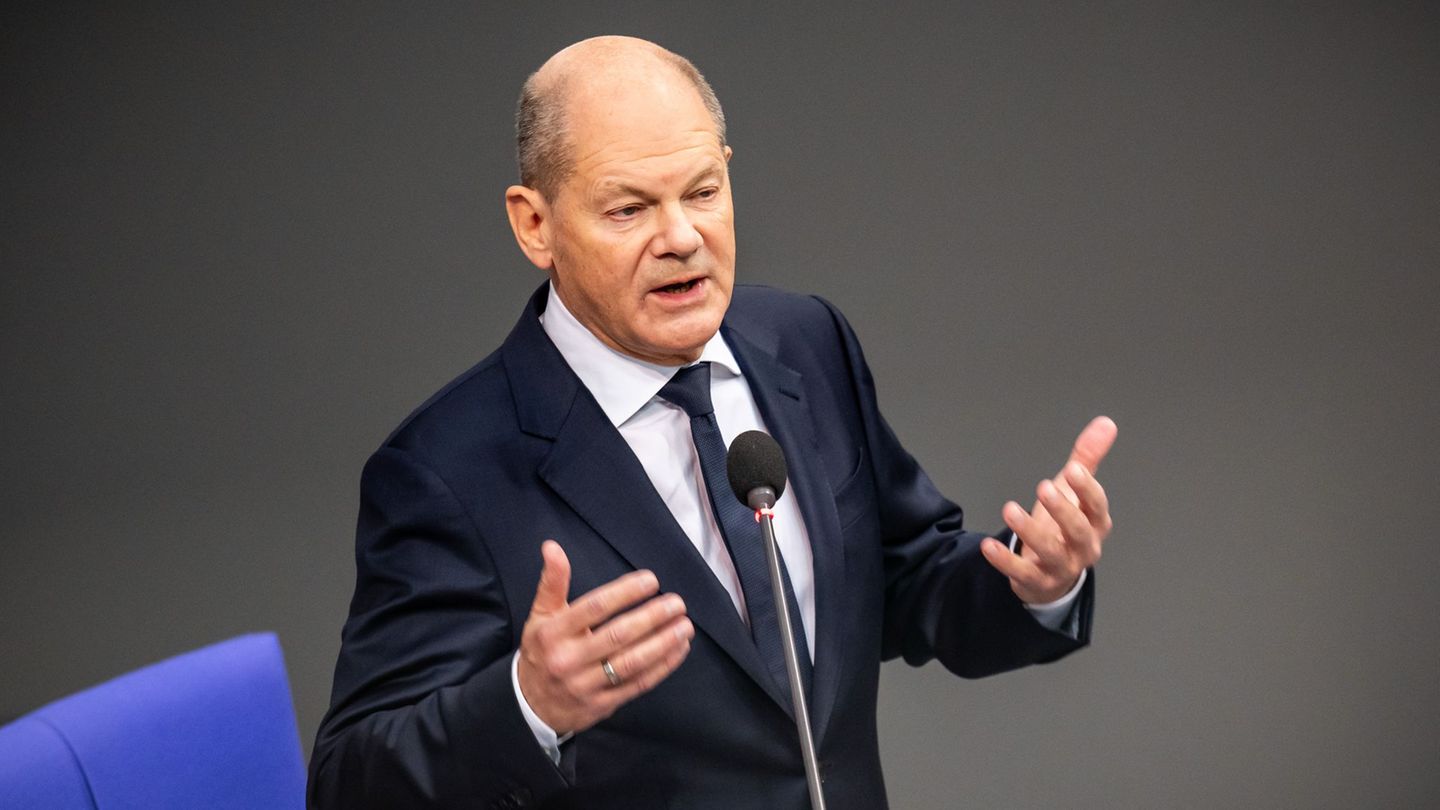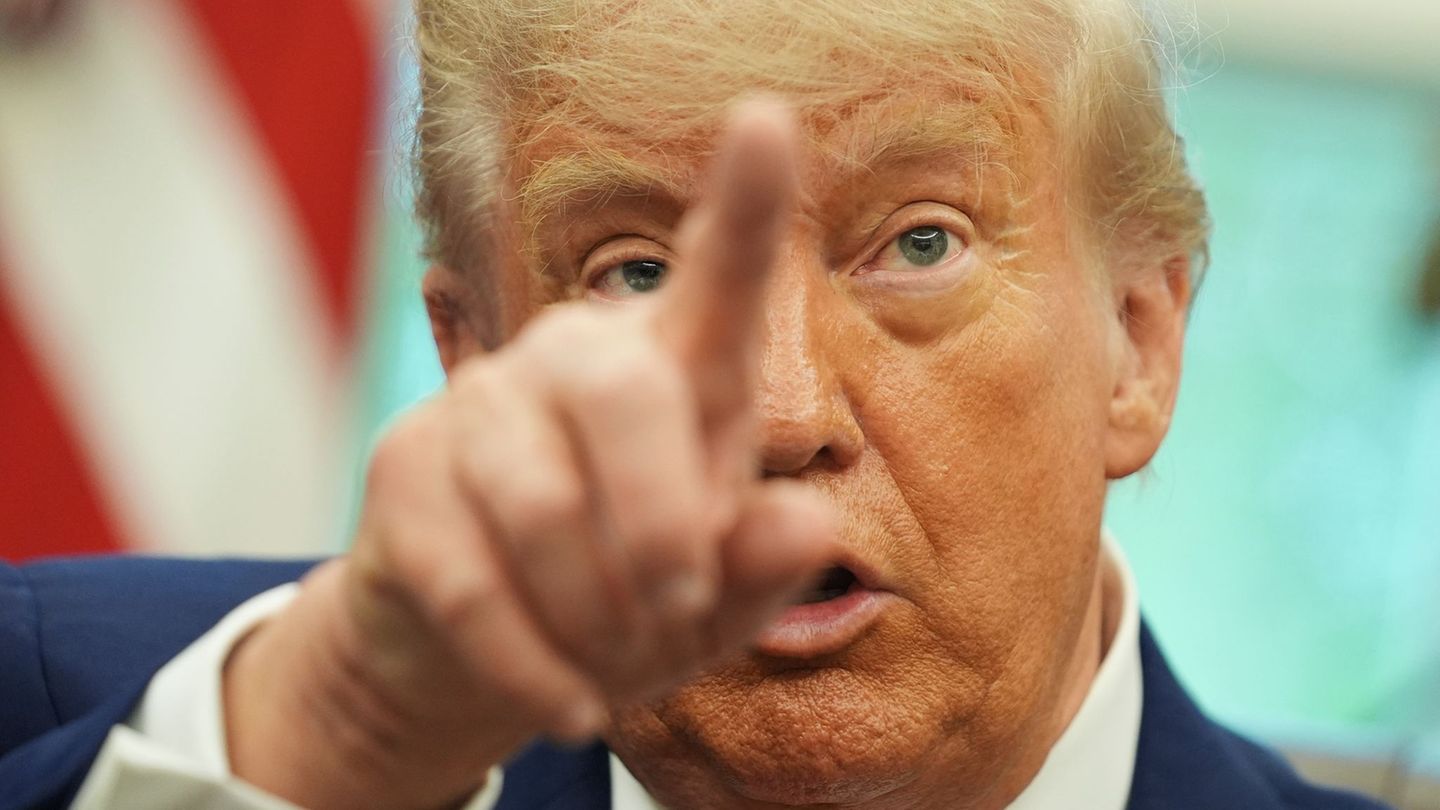Federal election
First step towards new elections: Scholz requests a vote of confidence
Copy the current link
This has only happened five times: a Federal Chancellor asks Parliament to vote of confidence. Today Olaf Scholz is submitting a corresponding application – with the aim of ultimately failing.
It is the first formal step on the way to new elections for the Bundestag: Chancellor Olaf Scholz (SPD) will today, citing Article 68 of the Basic Law, request that Bundestag President Bärbel Bas (SPD) have Parliament express its confidence in him. But his goal is for MPs to do exactly the opposite when they vote on Monday.
Sounds absurd, what’s the point?
After FDP Finance Minister Christian Lindner was kicked out and his traffic light coalition ended, Scholz wants to ensure that the Bundestag is re-elected about seven months earlier than originally planned – on February 23rd. He is currently leading a government supported by the SPD and the Greens, which no longer has a majority in the Bundestag and can therefore no longer implement anything without support from the opposition. Failure in the vote of confidence is an opportunity for the Chancellor to bring about an early federal election himself.
When and how will the Bundestag vote?
The Bundestag will vote on the proposal next Monday. Scholz will explain his reasons for the vote of confidence to MPs in a speech. There will then be a debate lasting around 90 minutes. The Bundestag will then probably decide in a roll-call vote. This means that the voting behavior of each individual MP will be published with a slight delay. So no parliamentarian can speak anonymously for or against Scholz.
Is it certain that Scholz won’t get a majority?
This is fairly certain, although there is an element of uncertainty. The Bundestag has 733 members. In order to gain parliament’s trust, Scholz would have to receive 367 votes – the absolute majority of all parliamentarians, also known as the “Chancellor’s majority”. The SPD parliamentary group with its 207 MPs wants to express its confidence in the Chancellor. The Greens, the SPD’s junior partner still in government, have not yet made a decision. Her parliamentary group leader Britta Haßelmann announced shortly after the traffic lights went out that the Greens would also vote for Scholz. There is now also talk of abstention.
Why are the Greens still wavering?
That’s because of the AfD. If the SPD and the Greens vote as a unit for Scholz, that would be a total of 324 votes, just 43 fewer than the Chancellor’s majority. The AfD has 76 MPs and could theoretically help Scholz gain a majority. That would be irrational, because the party actually wants to get rid of the red-green minority government. But Jürgen Pohl, an AfD MP, has already announced that he wants to vote for Scholz because, for him, he is the lesser evil compared to the Union candidate for chancellor Friedrich Merz. So it’s quite possible that the Greens will play it safe and agree with the SPD that they will abstain.
What happens next if Scholz loses?
He will then propose to Federal President Frank-Walter Steinmeier to dissolve the Bundestag, which he then has three weeks to do, i.e. until January 6th. If Steinmeier decides to do so, the new election must take place within 60 days.
Can Steinmeier also refuse to dissolve the Bundestag?
Yes, theoretically he can do that. Article 68 only states that the Federal President can dissolve the Bundestag – not that he has to dissolve it. However, it is practically impossible that Steinmeier will refuse to dissolve the agreement. He has already made it known that he believes the targeted new election date of February 23rd is realistic. And he explained the criteria he would use to decide: “Our country needs stable majorities and a government capable of acting.” This has not been the case since the traffic light crash on November 6th.
Is the Bundestag still able to act after the dissolution?
Yes. “The “old” Bundestag will remain in existence with all its rights and obligations until the new Bundestag meets,” says a report by the Bundestag’s scientific services. Parliament can meet again at any time, it can continue to pass laws, and its committees such as committees of inquiry also continue to exist until the end of the electoral term. This end is reached with the first meeting of the newly elected Bundestag.
What about the federal government?
The federal government is also still in office – in full and not just on an executive basis. According to Article 69 of the Basic Law, the office of the Federal Chancellor and his ministers only ends with the constitution of the new Bundestag. They will then receive their discharge certificates from the Federal President.
And if no new government has been formed by then?
According to Article 39 of the Basic Law, the new Bundestag meets no later than the 30th day after its election. Because coalition negotiations often drag on, it is common for the new government not to be in place at this point. The Federal President can then ask the Chancellor to continue the business until his successor is appointed. He is then obliged to do this. The same applies to ministers.
dpa
Source: Stern
I have been working in the news industry for over 6 years, first as a reporter and now as an editor. I have covered politics extensively, and my work has appeared in major newspapers and online news outlets around the world. In addition to my writing, I also contribute regularly to 24 Hours World.




